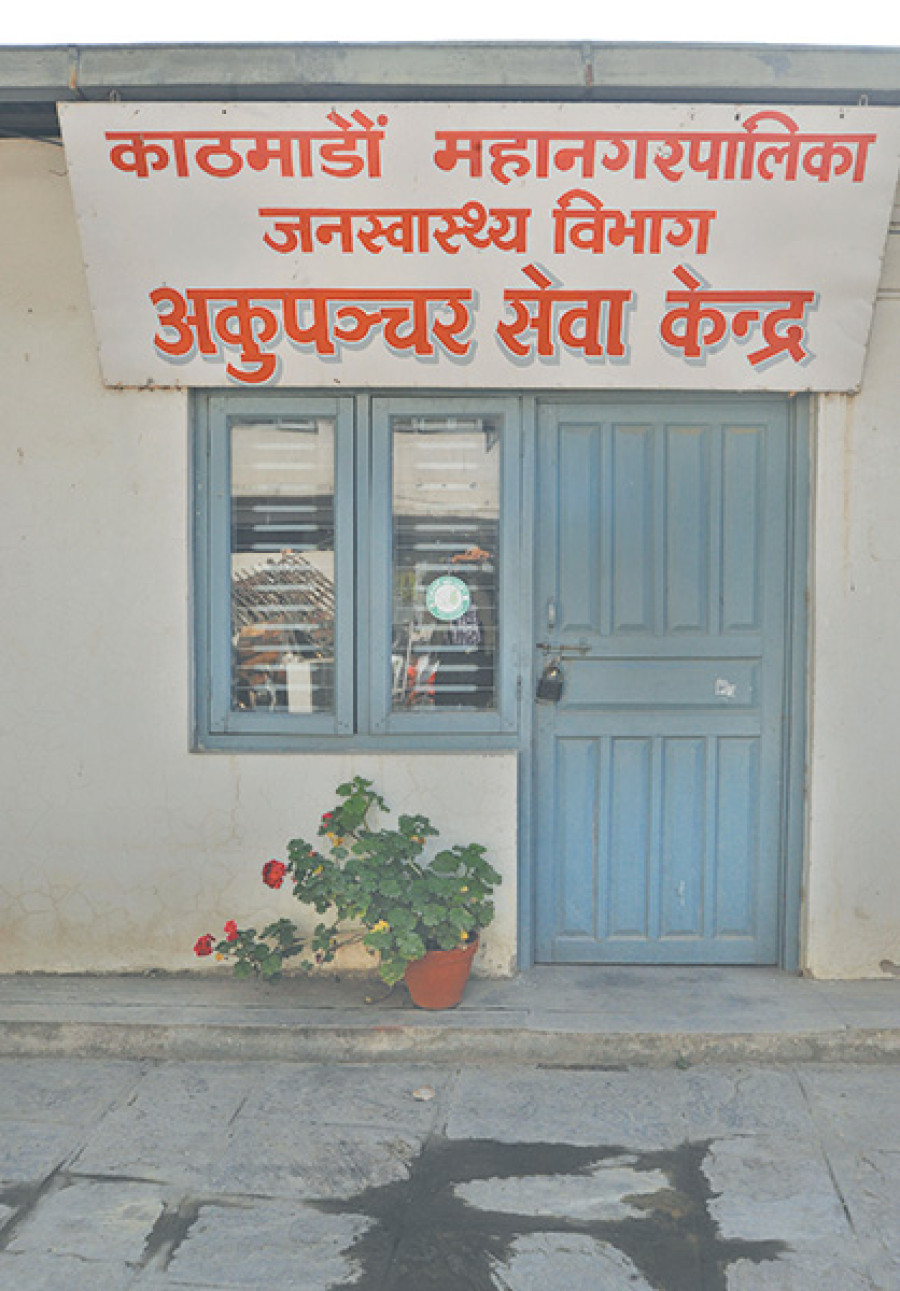Valley
‘Lack of patients’ shutters urban health clinic in Teku
The Urban Health Clinic and Acupuncture Centre in Teku that provide free health services to the public have been shuttered for over a month, citing a lack of patients.
Anup Ojha
The Urban Health Clinic and Acupuncture Centre in Teku that provide free health services to the public have been shuttered for over a month, citing a lack of patients.
When the Post reached Teku at 11am on Monday, both the clinic and centre were locked. The opening hours for the acupuncture centre are from 8am to 2pm and for the urban clinic, 10am to 5pm. The doors to the clinic, operated by the Kathmandu Metropolitan City (KMC) under its Public Health Department (PHD), were locked and its entrance had become a parking lot for officials at the KMC’s Environment Division.
Ever since moving to its current location in Teku from Naxal in 2008, the number of patients has decreased significantly, said Harsa Man Maharjan, the only staff member at the Acupuncture Centre. The clinic and acupuncture centre’s location is next to a landfill site, resulting in a decreased number of patients. His offices have been closed since before the Dashain festival, said Maharjan.
Before its closure, the centre provided daily services to over 20 patients suffering from conditions like joint pains, cramps, back pains, headaches and those undergoing stroke rehabilitation, said officials. The 20-bed facility offered services to general patients free or a nominal charge of just Rs 25 while private clinics charge over Rs 500 for the same services. The clinic also provided vaccinations and conducted nutrition programmes for pregnant women, pregnancy tests and family planning services.
“I don’t know anything about its condition,” said Narendra Bilash Bajracharya, chief at PHD, when contacted by the Post about the status of the Clinic and Acupuncture Centre. “I have just been appointed, I don’t know why it’s closed.”
Annually, the KMC allocates Rs 64 million for the PHD, which in turn operates 27 clinics in various Kathmandu wards to provide health services to the economically disadvantaged free or at a nominal cost.
“Every day, I go to meet Mayor Bidya Sundar Shakya, Deputy Mayor Hari Prabha Khadgi and other officials to request for a better location, but nobody listens to me,” said acupuncturist Maharjan, who has been working at the centre for a decade.
The Post attempted to reach another staff member, Laxman Adhikari, a health assistant at the clinic during office hours. But he said he was at Pashupati, attending a funeral. “Nobody comes to the clinic anymore, except for the families of KMC’s lorry drivers,” said Adhikari over the phone. “That is why I don’t have work at the office.”
KMC established the clinic in 2001. In its initial phase, the acupuncture centre was located in Naxal and had 200 beds. It was operated by KMC’s PHD and Social Welfare Department with the assistance of South Korean acupuncturists.
“We used to have so many patients that we never had empty beds,” said Dr Baburam Gautam, former chief of the KMC’s Health Department. Gautam primarily blames the shift in location from central Naxal to landfill Teku for the decrease in patients but also faults the KMC for its failure to inform the public about the clinic and centre’s new locations.




 9.83°C Kathmandu
9.83°C Kathmandu.jpg)














